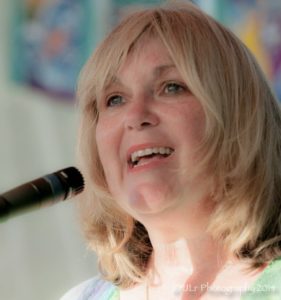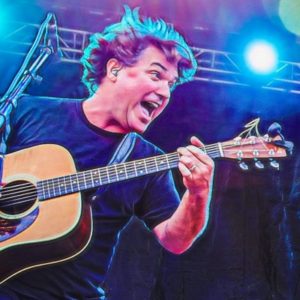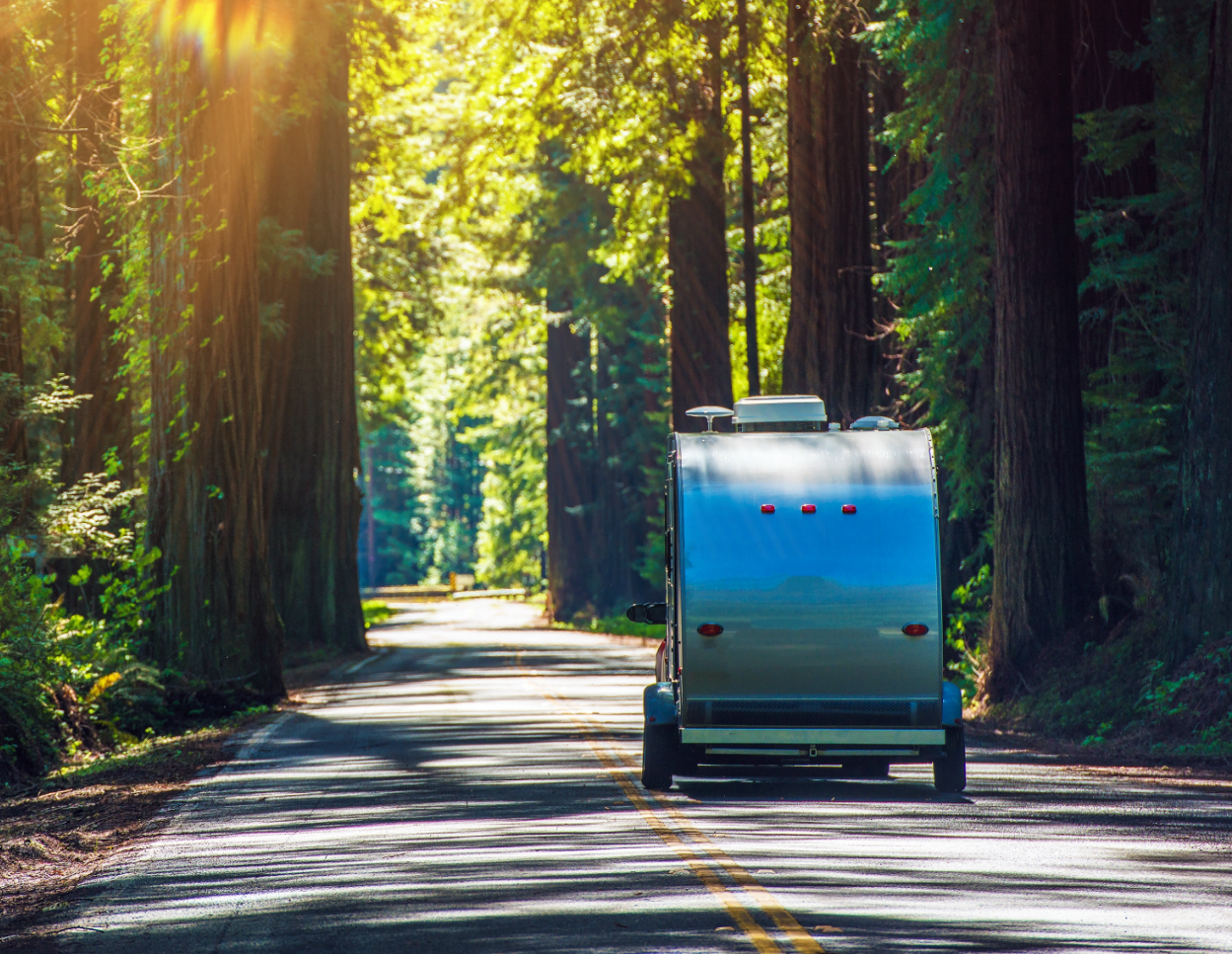 When the lights went down and the bands hit the stage for a “podfest” in the overflow parking lot at Spirit of the Suwannee Music Park in spring 2021, festival goers felt the return of something all new, yet familiar.
When the lights went down and the bands hit the stage for a “podfest” in the overflow parking lot at Spirit of the Suwannee Music Park in spring 2021, festival goers felt the return of something all new, yet familiar.
Coming on the tail end of the pandemic panic that shut down concerts, festivals and the economy at large for a hard year, pulling off Suwannee Spring Fling that March took a dose of faith.
It also took something else, said headliner Keller Williams.
“Let me be the first to say it,” Williams said. “Beth Judy’s got balls.”
He was speaking about the park’s festival director, who had staged another in a growing list of successful and safe socially-distanced music festivals. Someone had to be first back. At that point, the park had done it twice already. They’ve marketed it as “a tradition reborn.”
 Judy has been putting on shows at the Live Oak, Florida, campground and music destination for the better part of two decades. Her original production company, Magnolia Music and Events LLC, got its name from Magnolia Fest, one of the first festivals she staged. Judy has since staged scores of shows nestled beneath the Spanish moss-draped oaks and between calendar dates separating such big-draw fests as Hulaween and more recently, Suwannee Rising, which took the revered calendar spot held for 13 years by Wanee Festival.
Judy has been putting on shows at the Live Oak, Florida, campground and music destination for the better part of two decades. Her original production company, Magnolia Music and Events LLC, got its name from Magnolia Fest, one of the first festivals she staged. Judy has since staged scores of shows nestled beneath the Spanish moss-draped oaks and between calendar dates separating such big-draw fests as Hulaween and more recently, Suwannee Rising, which took the revered calendar spot held for 13 years by Wanee Festival.
A Florida resident, Judy lives 100 miles east of the park in Atlantic Beach, that is when she’s not on her mama’s Georgia farm. Music production is just a slice of her hectic schedule. Judy juggles care for her mother, who has Alzheimer’s, her ex-husband, Randy, whom a number of strokes has left debilitated, and long commutes to promote her shows at the park.
If her commitments have challenged Judy, it’s hard to tell. She has evolved and grown with the challenges of the festival business. Her lineup continues to evolve, with she and her team producing or having a hand in such shows as Rising, Suwannee Roots Revival and Spring Reunion.
“All those Rs, I don’t know what we were thinking,” she says with a laugh. “We just call them Reunion and Roots. In the back of our minds, they’re Spring Fest and Magfest.”
Dead Beginnings
Judy and business partner Randy, a long-time bluegrass musician, were Deadheads who met in the early 1980s. Beth grew up in Alma, Georgia; Randy was raised in Maryland. The two attended a long list of fests and concerts, such as Old and In The Way, Tony Rice and David Grisman, and were at the first MerleFest in 1988, a roots / Americana fest in North Carolina. With each, they saw “that magic that comes from those shows that builds their following,” she said.
They did “well over 100 shows, burned up the roads going to Grateful Dead shows until Jerry died,” she said.
Once Garcia passed and many Deadheads lost their beacon, the two – Beth, who had a business degree and 17 years with CSX, and Randy, with the vision and experience from the music and theater – sensed an opportunity. Their goal was to lure that following and build a music community in Live Oak, where the Judys had seen B.B. King at the park, even camping there.
“Our dream was to bring all these great people to Florida,” she recalled.
A year after seeing King, they spoke with the park owners about bringing fests to SOSMP. The Cornett family, who had staged bluegrass festivals in their native Kentucky, leased and later bought the 800-acre property and were eager to build it as a destination.
In March 1997, the Judys launched Springfest. Initially it was seen as a “one off” that would fill the void the Dead left. Their Big Cosmos Sunshine Daydream Weekend in October 1997 welcomed a variety of acts – Peter Rowan, Vassar Clements, eventually Big Brother and the Holding Company. Such a hit, they did it again, rebranded as MagnoliaFest with Relix Magazine as a sponsor. The fest went on for years, eventually joined by Bear Creek, eventually Wanee, and Hulaween.
“We kind of cut our teeth together,” recalled Judy about working with the Cornett family.
Spring Fest and MagFest were two of the park’s revered shows, until they weren’t. They were sold off, leaving a hole in the park’s line up and in the hearts and minds of the community that had been built. That’s where Roots and Reunion in the fall and spring, respectively, found their slot, each bringing around 4,500 bluegrass, folk and Americana fans to the park.
Twenty years in, Judy sees signing of acts as something of a sonic palette, as it’s been called, painting the sensory canvas with music and acts. She has called the process of scheduling from the opening to closing acts a process akin to “giving birth.”
Shows have brought veteran headliners and newcomers alike. The 2019 Suwannee Spring Reunion saw Donna the Buffalo, Jim Lauderdale, Verlon Thompson, the Larry Keel Experience, Steep Canyon Rangers, The Grass is Dead, Rev. Jeff Mosier and Jon Stickley Trio, as well as rising talent Nikki Talley and Billy Strings, who are in the midst of a sell-out headlining tour.
Her shows are more than just music for adults. They offer kid’s activities, wellness and yoga workshops, artists and epic campfire pickin’ parties. She called it spiritual. Judy now sees grandparents who years ago brought their children to these “family-inclusive” events now camping with their grandkids.
“You could have five generations of a family at the festival,” she enthused.
That community includes the crews and businesses who build the stages, handle the sound and lights, serve food and beverages, and handle other festival needs.
So it was after a year idling from the pandemic, Judy was excited to put the crew back to work. People talk about the importance of the “intangibles” – returns that cannot be measured. To Judy, she’s at a loss to explain it.
“What’s it like? I can’t tell you. You have to experience it. The most rewarding thing is to have people come up to me or write to me, and for me to see that look or hear that expression about how important these events have been in their lives,” said Judy, whose return includes supporting the Live Oak Music and Arts Foundation (LOMAF). The non-profit educates and provides charitable assistance to the North Florida community in music and other art forms.
“That was key to me and Randy,” she said. “From the beginning, this wasn’t just a business. We were building a community, not just with the artists, but with the fans and the crew. This was a family. That’s what these festivals are. In many ways, all festivals have that part to them.”
Looking back, Judy speaks of the countless hours spent with fellow producer Paul Levine and other park partners to plan and stage “podfests” as their return to safe events. They knew safety would be critical. They built “pods,” hired the safety squad to help guide fans to their pods and keep intermingling on the festival grounds to a minimum.
Her “gut check” paid off. At first, the golf cart shows welcomed carts in the pods. People who said they’d hate the pods loved bringing coolers to the show. She was moved.
“That practically brought me to my knees,” she said. “You’re going with what’s right for the fest, the fans, the crew, the bands. That’s what life is, you have to change and move forward.”
